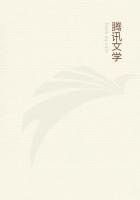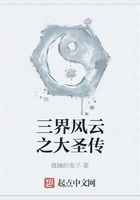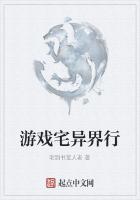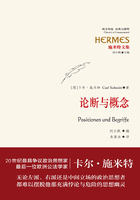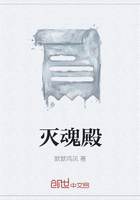He combines the profoundest feelings of religion with those patriotic recollections which were suggested by the reappearance of the illustrious dead."Next to Michael Angelo he was the best of all famous Italians, stained by no marked defects but bitterness, pride, and scorn;while his piety, his patriotism, and elevation of soul stand out in marked contrast with the selfishness and venality and hypocrisy and cruelty of the leading men in the history of his times. "He wrote with his heart's blood;" he wrote in poverty, exile, grief, and neglect; he wrote like an inspired prophet of old. He seems to have been specially raised up to exalt virtue, and vindicate the ways of God to man, and prepare the way for a new civilization. He breathes angry defiance to all tyrants; he consigns even popes to the torments he created. He ridicules fools; he exposes knaves.
He detests oppression; he is a prophet of liberty. He sees into all shams and all hypocrisies, and denounces lies. He is temperate in eating and drinking; he has no vices. He believes in friendship, in love, in truth. He labors for the good of his countrymen. He is affectionate to those who comprehend him. He accepts hospitalities, but will not stoop to meanness or injustice.
He will not return to his native city, which he loves so well, even when permitted, if obliged to submit to humiliating ceremonies. He even refuses a laurel crown from any city but from the one in which he was born. No honors could tempt him to be untrue unto himself;no tasks are too humble to perform, if he can make himself useful.
At Ravenna he gives lectures to the people in their own language, regarding the restoration of the Latin impossible, and wishing to bring into estimation the richness of the vernacular tongue. And when his work is done he dies, before he becomes old (1321), having fulfilled his vow. His last retreat was at Ravenna, and his last days were soothed with gentle attentions from Guido da Polenta, that kind duke who revived his fainting hopes. It was in his service, as ambassador to Venice, that Dante sickened and died. Afuneral sermon was pronounced upon him by his friend the duke, and beautiful monuments were erected to his memory. Too late the Florentines begged for his remains, and did justice to the man and the poet; as well they might, since his is the proudest name connected with their annals. He is indeed one of the great benefactors of the world itself, for the richness of his immortal legacy.
Could the proscribed and exiled poet, as he wandered, isolated and alone, over the vine-clad hills of Italy, and as he stopped here and there at some friendly monastery, wearied and hungry, have cast his prophetic eye down the vistas of the ages; could he have seen what honors would be bestowed upon his name, and how his poem, written in sorrow, would be scattered in joy among all nations, giving a new direction to human thought, shining as a fixed star in the realms of genius, and kindling into shining brightness what is only a reflection of its rays; yea, how it would be committed to memory in the rising universities, and be commented on by the most learned expositors in all the schools of Europe, lauded to the skies by his countrymen, received by the whole world as a unique, original, unapproachable production, suggesting grand thoughts to Milton, reappearing even in the creations of Michael Angelo, coloring art itself whenever art seeks the sublime and beautiful, inspiring all subsequent literature, dignifying the life of letters, and gilding philosophy as well as poetry with new glories,--could he have seen all this, how his exultant soul would have rejoiced, even as did Abraham, when, amid the ashes of the funeral pyre he had prepared for Isaac, he saw the future glories of his descendants; or as Bacon, when, amid calumnies, he foresaw that his name and memory would be held in honor by posterity, and that his method would be received by all future philosophers as one of the priceless boons of genius to mankind!
AUTHORITIES.
Vita Nuova; Divina Commedia,--Translations by Carey and Longfellow;Boccaccio's Life of Dante; Wright's St. Patrick's Purgatory; Dante et la Philosophie Catholique du Treizieme Siecle, par Ozinan;Labitte, La Divine Comedie avant Dante; Balbo's Life and Times of Dante; Hallam's Middle Ages; Napier's Florentine History; Villani;Leigh Hunt's Stories from the Italian Poets; Botta's Life of Dante;J. R. Lowell's article on Dante in American Cyclopaedia; Milman's Latin Christianity; Carlyle's Heroes and Hero-worship; Macaulay's Essays; The Divina Commedia from the German of Schelling;Voltaire's Dictionnaire Philosophique; La Divine Comedie, by Lamennais; Dante, by Labitte.
GEOFFREY CHAUCER
A.D. 1340-1400.
ENGLISH LIFE IN THE FOURTEENTH CENTURY.
The age which produced Chaucer was a transition period from the Middle Ages to modern times, midway between Dante and Michael Angelo. Chaucer was the contemporary of Wyclif, with whom the Middle Ages may appropriately be said to close, or modern history to begin.

